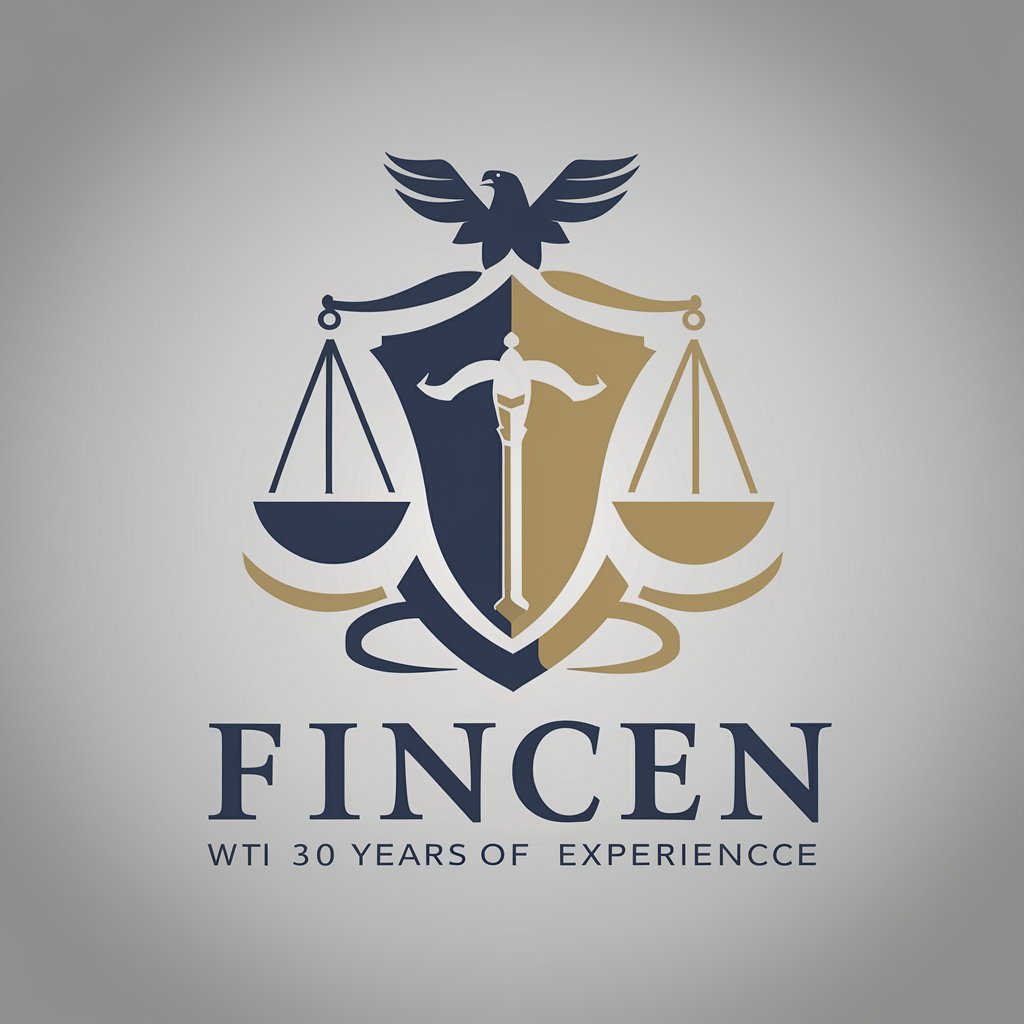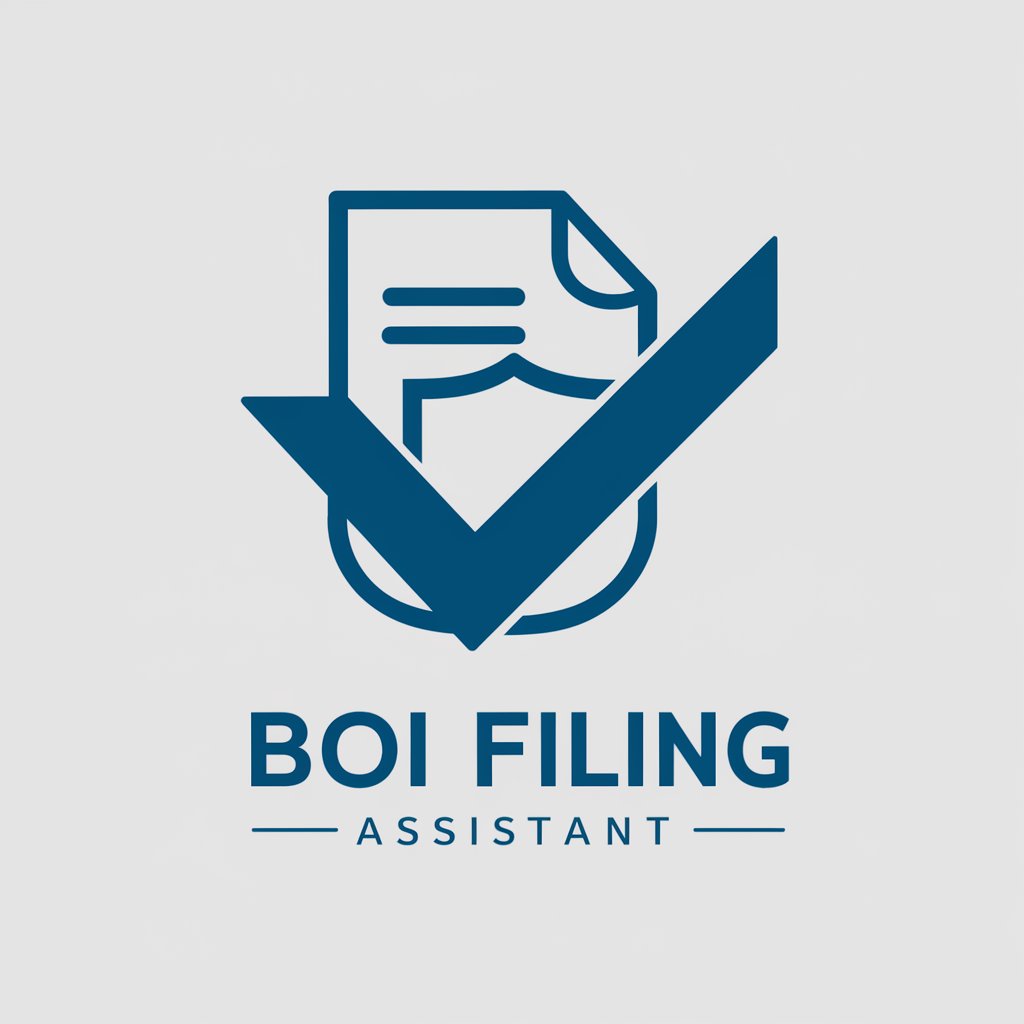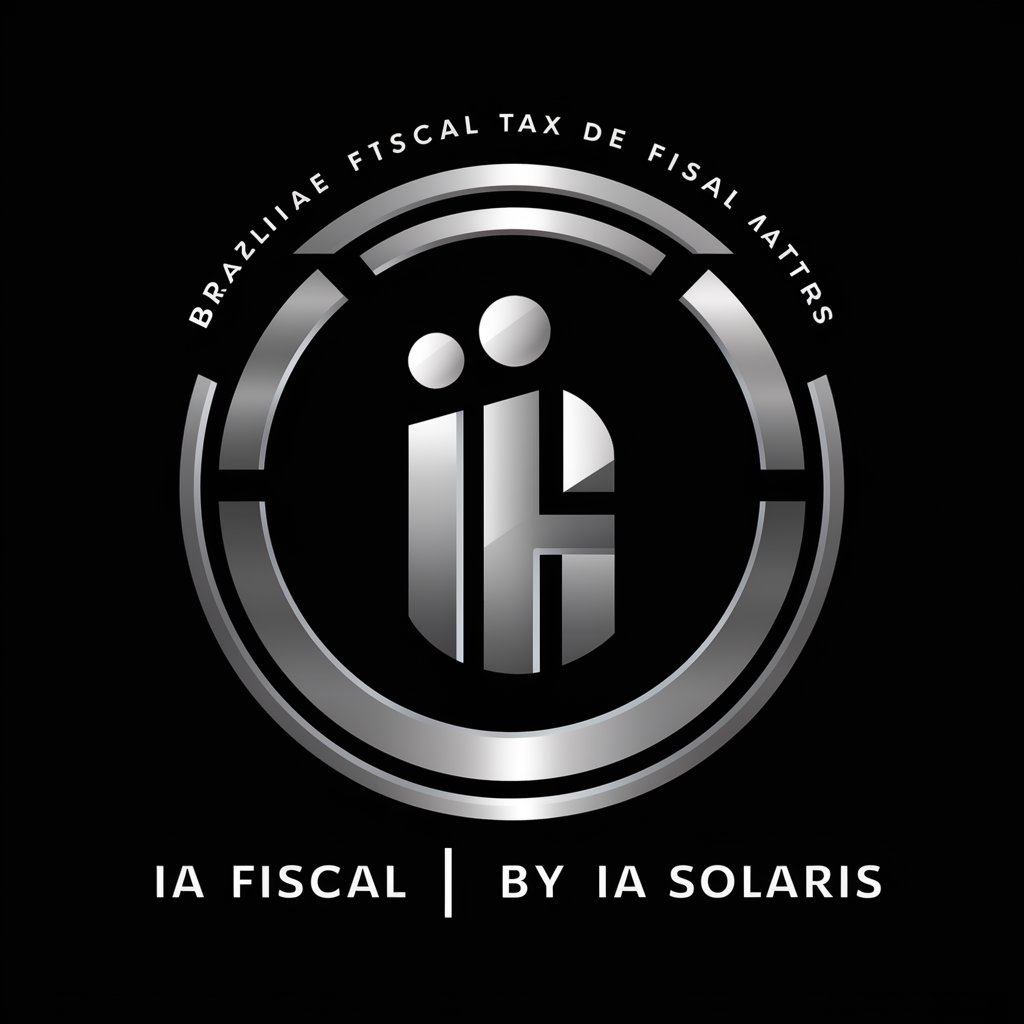
BOI_FinCEN - BOI Reporting Tool

Welcome to FinCEN's BOI guidance. How can I assist you today?
Simplifying Ownership Reporting with AI
How can I comply with the Beneficial Ownership Information requirements for my business?
What steps do I need to take to file BOI with FinCEN?
Can you explain the key aspects of the BOI compliance process?
What information is required to complete the BOI filing for my company?
Get Embed Code
Introduction to BOI_FinCEN
BOI_FinCEN, which stands for Beneficial Ownership Information within the Financial Crimes Enforcement Network, is designed to enhance financial transparency and combat money laundering and terrorist financing. It operates under the U.S. Department of the Treasury and focuses on collecting, analyzing, and disseminating financial information to support law enforcement and regulatory agencies. The BOI_FinCEN framework requires certain entities to report beneficial ownership information, thus making it harder for illicit actors to conceal their identities through complex company structures. An example scenario illustrating its purpose could involve a newly established company in the U.S. that must report its beneficial owners (individuals who ultimately own or control the company) to FinCEN. This mechanism aids in preventing money laundering by ensuring that the identities behind business entities are transparent and traceable. Powered by ChatGPT-4o。

Main Functions of BOI_FinCEN
Collection of Beneficial Ownership Information
Example
Requiring reporting companies to submit detailed information about individuals with substantial control or ownership interests.
Scenario
A startup tech company registers in the U.S. and submits a report detailing all individuals who own more than 25% of the company shares or have significant control over company decisions.
Maintenance of a Secure and Confidential Database
Example
Storing collected beneficial ownership information in a centralized database accessible only by authorized personnel.
Scenario
Law enforcement investigating a money laundering case requests access to BOI_FinCEN data to uncover hidden ownership layers of suspicious companies.
Assisting in Financial Transparency and Compliance
Example
Providing guidance and tools for small entities to comply with reporting requirements.
Scenario
A small family-owned business navigates the BOI_FinCEN reporting requirements using a compliance guide and online resources provided by FinCEN to accurately report their ownership structure.
Ideal Users of BOI_FinCEN Services
Financial Institutions
Banks, credit unions, and other financial entities use BOI_FinCEN data to perform due diligence and enhance their anti-money laundering programs.
Law Enforcement Agencies
Local, state, and federal law enforcement agencies utilize BOI_FinCEN information to investigate and prosecute financial crimes, including money laundering and terrorist financing.
Reporting Companies
Entities required to report beneficial ownership information, including corporations, LLCs, and similar entities, benefit from BOI_FinCEN's streamlined reporting process and guidance resources.
Compliance Professionals
Compliance officers and consultants specializing in financial regulations use BOI_FinCEN services to ensure their clients or employers adhere to beneficial ownership reporting requirements.

Guidelines for Using BOI_FinCEN
1
Start with a free trial at yeschat.ai, no login or ChatGPT Plus required.
2
Familiarize yourself with the BOI reporting requirements by reviewing the official FinCEN guidelines available on their website.
3
Gather necessary business information and documents required for BOI reporting, including beneficial owner details.
4
Utilize the BOI_FinCEN tool to compile and review your BOI report, ensuring accuracy and completeness.
5
Submit your BOI report through the FinCEN's reporting portal, adhering to the submission deadlines.
Try other advanced and practical GPTs
Golden Age Advertising
Reviving the Golden Era of Advertising with AI

SSML - GPT
Empowering Speech with AI

🧐Grants Manager: Grant Fundwell
Empowering Your Grant Success with AI

Best Idea "Consumer-Driven Design Revolution"
Empowering Innovation with AI

GPT Impressionist with Token Analysis
Reimagine art with AI-powered impressionism and token insight.

Roast My GPT
Get personalized AI roasts on the fly.

Persona-inspired Prompter
Empower Your Queries with Persona-Driven AI

Chef Buddy
AI-powered culinary creativity at your fingertips

Travel GPT
AI-powered personalized travel planning

The Corporate Manager
Empower decisions with AI-powered corporate acumen.

Dubai Property Price Predictor
AI-powered Dubai Property Insights

Dynamic File Converter
Transform files effortlessly with AI

FAQs About BOI_FinCEN
What is BOI_FinCEN?
BOI_FinCEN is a tool designed to assist businesses in compiling and submitting their Beneficial Ownership Information (BOI) reports to the Financial Crimes Enforcement Network (FinCEN) in compliance with regulatory requirements.
Who needs to use BOI_FinCEN?
Businesses required to submit BOI reports to FinCEN, including entities subject to the Corporate Transparency Act, can benefit from using BOI_FinCEN for streamlined reporting.
What information is required for BOI reporting?
BOI reporting requires details about the reporting company and its beneficial owners, such as names, addresses, dates of birth, and identification numbers.
How does BOI_FinCEN ensure data accuracy?
BOI_FinCEN offers guidance and validation features to help users accurately compile their BOI reports, reducing the risk of errors and non-compliance.
Can BOI_FinCEN help with report updates?
Yes, BOI_FinCEN supports the creation of updated and corrected BOI reports, facilitating compliance with changing ownership information or correcting previously submitted data.





